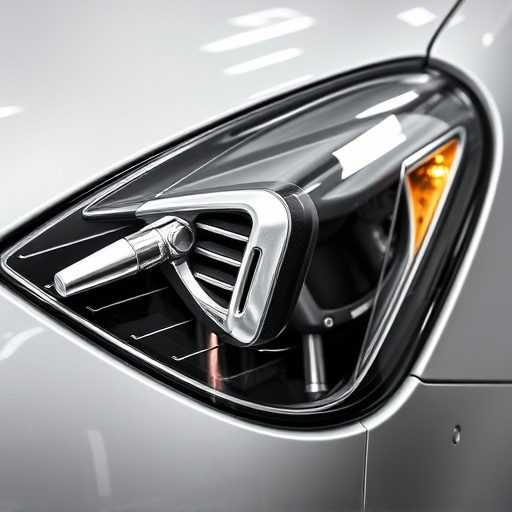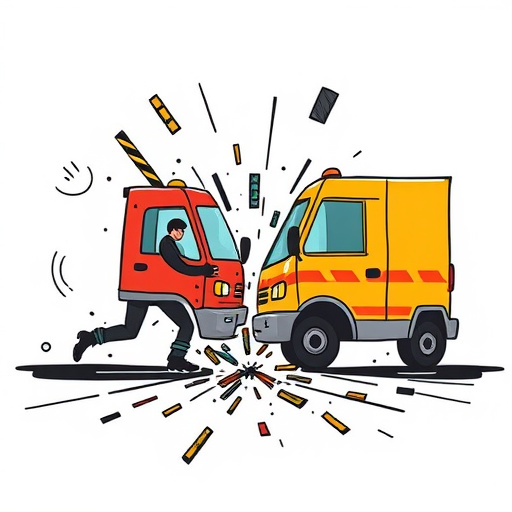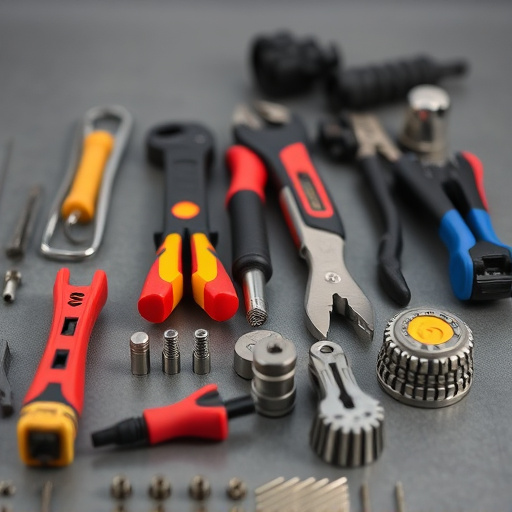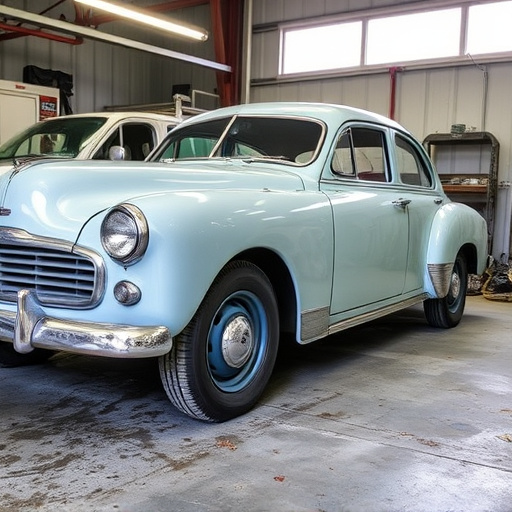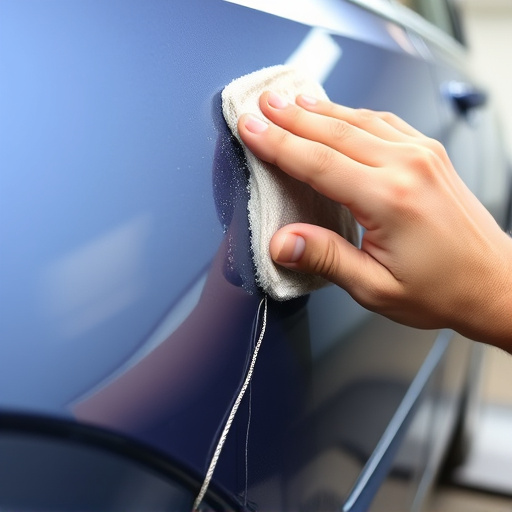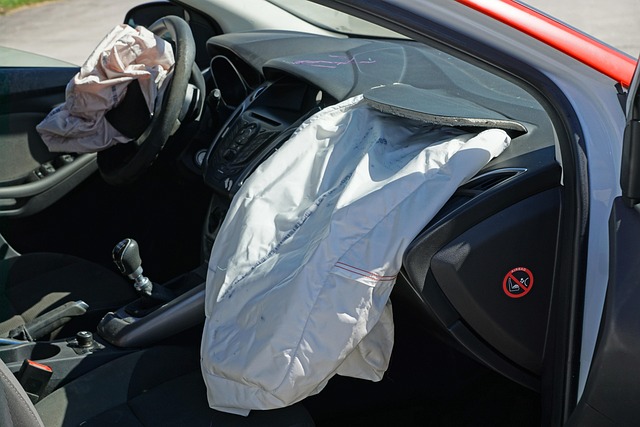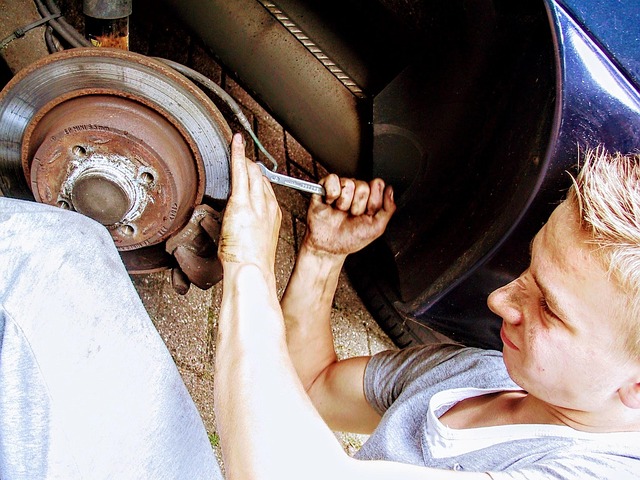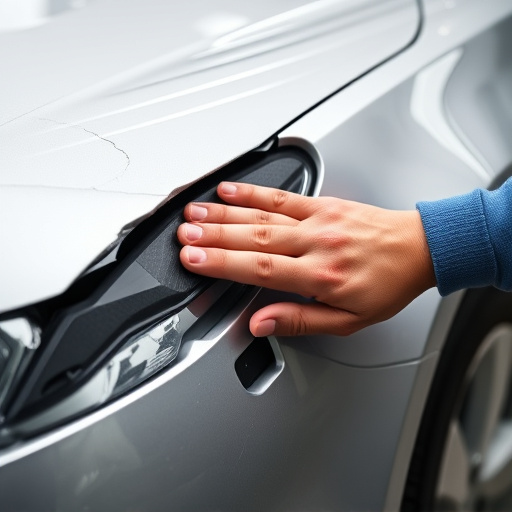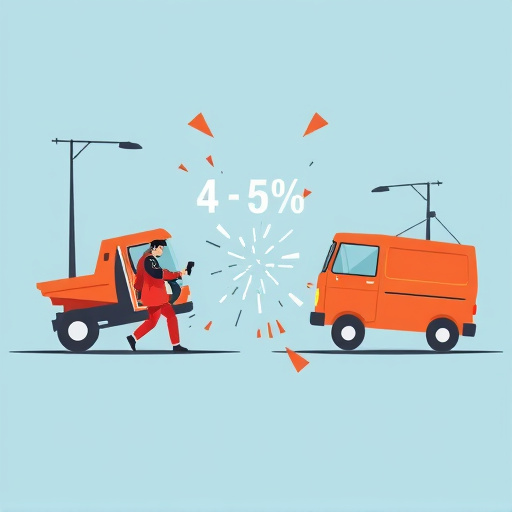Modern vehicles' advanced safety systems, such as automatic emergency braking and lane-keeping assist, rely on precise repairs by certified collision centers for optimal functionality. These centers offer specialized training and up-to-date technology to ensure accurate assessments and reliable repairs, maintaining vehicle safety standards after incidents. By adhering to original equipment manufacturer (OEM) standards, they preserve the integrity and effectiveness of sophisticated safety features, enhancing road safety and driving experiences.
In today’s automotive landscape, advanced safety systems are no longer a luxury but an essential feature in modern vehicles. These systems, including adaptive cruise control, automatic emergency braking, and lane-keeping assist, play a pivotal role in preventing accidents and saving lives. Certified Collision Centers (CCCs) have emerged as vital players in the repair process, equipped with specialized training and advanced tools to handle these intricate systems without compromising their functionality. Choosing a CCC ensures skilled technicians, quality repairs, preserved vehicle value, and peace of mind knowing your safety is in reliable hands.
- Understanding Advanced Safety Systems in Modern Vehicles
- – Definition and types of advanced safety systems
- – Importance of these systems in preventing accidents and saving lives
Understanding Advanced Safety Systems in Modern Vehicles

Modern vehicles are equipped with a myriad of advanced safety systems designed to protect occupants and reduce the risk of accidents. These systems include features like automatic emergency braking, adaptive cruise control, lane-keeping assist, and blind spot monitoring, among others. They rely on a complex network of sensors, cameras, and software to detect potential hazards and intervene when necessary. Understanding these technologies is crucial for certified collision centers, as they often deal with repairs related to both the physical damage and the proper functioning of these safety systems.
A certified collision center that specializes in modern vehicles is well-equipped to handle the unique challenges posed by advanced safety systems. They employ technicians trained in diagnosing and repairing these intricate networks, ensuring that a car scratch repair or dent removal process doesn’t compromise any safety features. By staying up-to-date with the latest technological advancements, these car body shops can offer accurate assessments and reliable repairs, maintaining the vehicles’ safety standards even after an incident.
– Definition and types of advanced safety systems

Advanced safety systems are a crucial aspect of modern vehicles, designed to protect occupants and enhance overall driving experience. These systems range from basic features like anti-lock braking systems (ABS) and electronic stability control (ESC) to more sophisticated technologies such as adaptive cruise control, lane-keeping assist, and automatic emergency braking. Certified collision centers are equipped to handle the complex repairs associated with these advanced safety systems, ensuring they remain functional and integrated into the vehicle’s overall performance.
For instance, a certified collision center specializing in Mercedes Benz repair would have the expertise and tools to deal with intricate airbag systems, crash sensors, and advanced driver-assistance systems (ADAS). They offer not just auto repair services but also tire services, ensuring that these safety features are meticulously calibrated and tested after any collision or routine maintenance. This level of proficiency is vital in maintaining the integrity of a vehicle’s safety capabilities, which have become integral to today’s automotive landscape.
– Importance of these systems in preventing accidents and saving lives

Advanced safety systems play a pivotal role in enhancing vehicle security and significantly reducing the risk of accidents. Features like collision avoidance, lane departure warnings, and adaptive cruise control are no longer luxuries but essential tools in the quest for safer roads. These technologies use sensors and cameras to detect potential hazards, providing drivers with critical split-second warnings or even automatically applying brakes to prevent crashes. By acting as a safety net, these systems save countless lives and minimize the severity of accidents.
Certified collision centers are uniquely equipped to handle the challenges posed by modern vehicles’ advanced safety systems during repairs. They employ specialized technicians trained in diagnosing and repairing these intricate components without compromising their effectiveness. Moreover, these centers prioritize car body restoration and vehicle repair processes that maintain the original equipment manufacturer’s (OEM) standards, ensuring not just visual appeal but also optimal safety features after a collision. Even paintless dent repair techniques contribute to preserving the vehicle’s structural integrity and advanced safety systems, offering cost-effective solutions without sacrificing quality.
Certified collision centers play a pivotal role in navigating the complexities of modern vehicles’ advanced safety systems. By staying abreast of technological advancements, these centers ensure that repairs not only restore physical damage but also preserve the integrity of life-saving features. With their expertise, certified technicians can accurately diagnose and repair critical systems like airbags, anti-lock braking, and collision avoidance, ensuring these safety mechanisms function optimally after an accident. This specialized handling contributes significantly to road safety, reflecting the commitment of certified collision centers to go beyond mere aesthetics in vehicle restoration.

